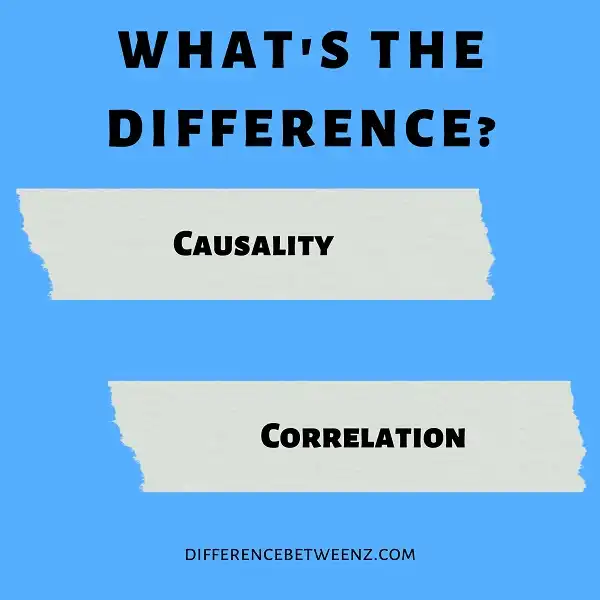Causality vs. Correlation
Difference between Causality and Correlation: – Humans have always been interested in understanding everything that happens in our environment, for this reason, it is common to formulate explanations for the various phenomena that are presented; but in some cases, these explanations are poorly formulated because we co-found some elements with others.
Difference between Causality and Correlation
Next we will tell you the difference between causality and correlation. You will see that they are not the same.
Correlation
Correlation occurs when two or more events occur at the same time. Such events may share some kind of association with each other; however, a correlation does not imply a causal relationship. It is simply a matter of establishing a kind of comparison between two or more variables at the same time, but in no way does the correlation seek to explain why the variables undergo this or that change.
A positive correlation is one in which if the frequency of one variable increases, then the same change is reflected in the other. On the other hand, in a negative correlation, frequencies exhibit inverse characteristics (one variable increases and another decreases). An example of positive correlation is as follows:
The demand for a product rises, so its price also tends to rise. However, both demand and price are entities different; but in this case they are varying together. However, this does not imply that the demand is due to the increase of the price or that the price has as only possible cause the increase of the demand; since the price could be increasing because the raw material is also more expensive or any other factor.
Causality
Causality helps determine the existence of a relationship between variables. It is transitive in nature, meaning that if A is the cause of B and B is the cause of C, then A is the cause of C. One tends to derive this inference from correlation data.
Three conditions must be true to claim that such a thing is the cause of something specific. These conditions are related to the time of precedence, relationship and knowledge or experience.
An example of a causal relationship is as follows:
Someone who works late and earns more money than a person who doesn’t. In this case, the relationship is causal because there is a direct relationship between the employee and the money earned by him (and how he earns it).
Causality is more accurate than correlation, since correlation is simply a description of entities that change at the same time. Practically, establishing a correlation is easier than establishing a clear causal relationship.
The austerity can only be accepted when there are sufficient clear reasons, otherwise; it is always a good idea to use the correlation in place of causality. Correlation does not imply causality, but it does help to suggest one.
Key Differences between Correlation and Causation
- Causality refers to the cause and effect of a phenomenon, in which one thing directly causes the change of another. While a correlation is a comparison or description of two or more different variables, but together. In this case, the variables are said to be correlated.
- Correlations are easier to establish compared to causalities.
- An example of causality is to say that smoking causes cancer, while an example of correlation would be to say that smoking is related to alcoholism.


